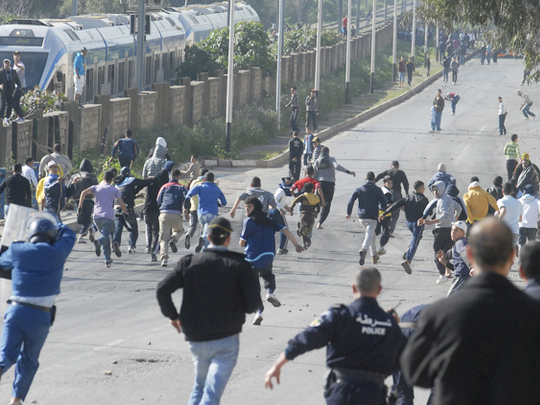
Dubai: Protests by angry youths in Algeria are just one example of the alarming signs on the horizon with regard to rising food prices.
Food inflation in many Asian countries, including China and India, is in double digits. The Kenyan government has issued a drought and famine alert after reports of several people having died from hunger-related causes.
International organisations are talking of "a food price shock" hitting the world.
With food supplies and prices making headlines around the globe for the second time in less than three years, experts are warning of the possibility of social unrest sweeping through poor countries.
Responding to a question posed by Gulf News on whether he sees a global crisis similar to the 2007-08 one that led to rioting, UAE-based economist Mohammad Al Asoomi said: "I can't say for sure whether it [social unrest] will happen. [Yet], I believe things are moving towards increasing prices, and this could be absorbed by rich countries. But in poor countries, most segments of society won't be able to handle these increases."
"We are entering danger territory," Abdolreza Abbassian, an economist at the United Nations' Food and Agricultural Organisation (FAO) was quoted as saying on Wednesday.
Rising inflation
However, he added that the situation was not yet similar to the two-year crisis when food riots hit nearly 30 countries from Bangladesh to the East to Haiti in the West.
The FAO announced on Wednesday that its food price index had jumped to 214.7 points from the peak of 213.5 recorded in June 2008.
According to the FAO, the prices of sugar and meat were at their highest since its records began in 1990. Prices were at their highest since 2008 crisis levels for wheat, rice, corn and other cereals.
World Bank President Robert Zoellick urged governments in a newspaper opinion column to avoid protectionist measures as food prices rise and called upon the Group of 20 leading economies to take steps to make sure the poor get adequate food supply.
"The answer to food price volatility is not to prosecute or block markets, but to use them better," Zoellick wrote in the opinion piece published in the Financial Times.
"By empowering the poor the G20 can take practical steps towards ensuring the availability of nutritious food," he wrote.
In 2010, low-income food deficit countries’ import requirements were around 89 million tonnes of cereals, according to the United Nations’ Food and Agriculture Organisation (FAO) statistics. Of this, African countries imported 43 million and Asian countries 44 million tonnes.
Solving current food prices needs “a collective effort” from all countries, with the world became one big entity with globalization and not a single country can depend on itself totally, Assoumi said.
A long term solution for the food prices issue, however, should “put an end to the ongoing speculations on the food prices, increasing the food production through taking advantage of the latest technology and limit the high population increases in developing nations,” Assoumi said.












